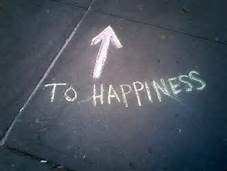Happiness has become an industry that is selling all of us.
 Barry Larkin committed suicide in 1995. No one in his family or among his friends knew he was chronically depressed. His son, Gavin, was so shocked by his much-loved father’s death that it eventually led him to co-found the R U OK? movement.
Barry Larkin committed suicide in 1995. No one in his family or among his friends knew he was chronically depressed. His son, Gavin, was so shocked by his much-loved father’s death that it eventually led him to co-found the R U OK? movement.
On the second Thursday in September, Australians are encouraged to contact someone they know who might be going through a difficult patch and ask: “Are you OK?” The simplicity of the challenge combined with the complexity of our contemporary mental-health culture has struck a chord. R U OK? has taken off, and not just on one day of the year.
Last year, as the promotion for the campaign ramped up, I called two friends, both aged under 30, who I knew were struggling, one with a bitter divorce, the other with ill health. The friend battling cancer was in better spirits and had good family support. Within seconds of asking my friend going through a difficult divorce if he was OK, he burst into tears and sobbed. Only the thought of leaving his children fatherless was stopping him from ending his life. Although it wasn’t a bad start, my friend needed more than a phone call. He needed a lot of help.
It is a shocking reality that the greatest cause of death in young people under 30 in the developed world is not the abuse of drugs or alcohol or misadventure, but suicide. Young adults living in the countries with the highest standards of living and with the greatest educational opportunities, in theory, should have the most to live for. Yet, in a generation that is sometimes described as the most socially connected ever, the feeling of isolation appears like a pandemic. Many contemporary young people are not OK.
The reasons for this poor state of mental health, the increase in suicide (or “self-delivery”, as suicide is now sometimes called) and attempted suicide, are many and complex. However, as Hugh Mackay argues in The Good Life , happiness has become an industry that is selling all of us a lie.
“I don’t mind people being happy – but the idea that everything we do is part of the pursuit of happiness seems to me a really dangerous idea and has led to a contemporary disease in Western society, which is fear of sadness,” Mackay writes. “We’re kind of teaching our kids that happiness is the default position – it’s rubbish. Wholeness is what we ought to be striving for and part of that is sadness, disappointment, frustration, failure; all of those things which make us who we are … I’d like just for a year to have a moratorium on the word ‘happiness’ and to replace it with the word ‘wholeness’.”
Mackay is not on his own. I have lost count of the number of parents who tell me: “I don’t care what my kids do, as long as they’re happy.” Although it may be just a casual throwaway line, it is a symptom of a deeper anxiety. Why are we setting our children up for such failure? Why don’t Christian parents say: “I want my children to be faithful, hopeful, loving, just and good.” Living those virtues will not always lead to happiness – but it will bring something more valuable and precious. Joy.
Joy is one the great themes in the teaching of Pope Francis. Christian joy is not the same as happiness. Christian joy celebrates that we know where we have come from, why we are here and where we are going. It moves away from trying to find the easy side of life to confronting the inevitable tough moments in our lives, and to embracing suffering as an inescapable reality of the human condition. It seeks to be resilient in the face of adversity by embodying Jesus’ call to love God and our neighbour as we love ourselves. And it tells us that we are not meant to live isolated lives like “rocks and islands”, as the Simon and Garfunkel song has it. There was a good reason why Jesus sent the disciples out in twos.
Gavin Larkin’s wife, Maryanne, found out how tragic and unhappy life can truly be. Gavin died of lymphoma at the age of 42 in 2011, 16 years after his father’s suicide. Their son, Gus, died from brain cancer at the age of 15 in 2013. I hope people call Maryanne to ask her if she is OK.
We need to do the same for someone we know who may be struggling, especially if he or she is young, because so many young people have been sold a lie. Now that life is not as happy as they were promised it would be, some find they have no hope for the future. Living Christian joy is not easy or straightforward. But setting out on this path might be the way to be more than OK.
Richard Leonard SJ is the author What Does It All Mean? (Paulist Press).


 Votes : 0
Votes : 0









